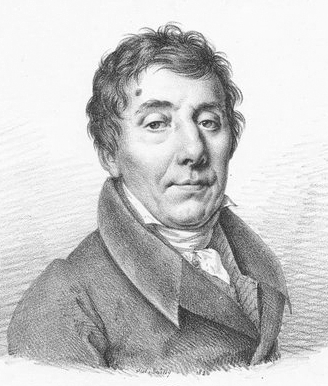
Louis de Bonald
Louis Gabriel Ambroise, Vicomte de Bonald (2 October 1754 — 23 November 1840) was a French counter-revolutionary[2] philosopher and politician. He is mainly remembered for developing a theoretical framework from which French sociology would emerge.[3][4][5][6]
Louis de Bonald
2 October 1754
23 November 1840 (aged 86)
- Divine origin of language
- Social fact
- Pre-sociology
Influence[edit]
Bonald's writings exercised a great deal of influence over conservative and French Catholic thought throughout the 19th century. The French writer Honoré de Balzac considered himself to be an intellectual heir of Bonald and took up many Bonaldian themes in his writings, once declaring that "when it beheaded Louis XVI, the Revolution beheaded in his person all fathers of families." Bonald's influence carried on throughout the counter-revolutionary tradition in the writings of Spanish conservative Juan Donoso Cortés and the ultramontane French journalist Louis Veuillot. His writings also exerted a great influence over the corporatist philosophical tradition through Frédéric le Play and René de La Tour du Pin, and through them he had an influence on the development of the principle of solidarity in Catholic social thought.
Bonald's direct influence fell into decline after World War I, especially outside of French Catholic circles. Since then he has generally suffered neglect at the hands of economic historians and historians of Catholic thought. Bonald's thought has often drawn more positive attention from historians working within the Marxist or socialist tradition.[9]
Attribution: